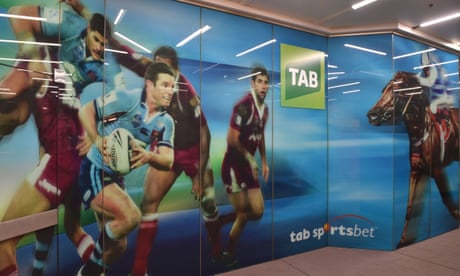Extract from The Guardian

The parliamentary inquiry into online gambling harm has now received almost 150 submissions from organisations involved in sports betting.
Labor MP Peta Murphy rejects claims by broadcasters that further regulation could lead to a reduction in free sport coverage.
Wed 1 Mar 2023 18.27 AEDT
Last modified on Wed 1 Mar 2023 18.29 AEDTThe inquiry into online gambling harm, led by Labor MP Peta Murphy, has now received almost 150 submissions from organisations involved in sports betting and held multiple hearings. It will inform any regulatory action taken by the federal government, amid concerns the $50bn industry is causing undue harm.
“It is absolutely clear that it is not just community members who are concerned about the proliferation of sports betting advertisements and the increasing engagement of young people in sports betting,” Murphy, the chair of standing committee on social policy and legal affairs, said.
“We have heard from a lot of public health experts, academics, researchers and support services and the evidence is pointing to harm from gambling being something that exists for online betting as well as the more traditional, land-based gambling that we’re all aware of.”
The peak bodies for free-to-air TV and radio broadcasters have argued current advertising restrictions are appropriate and that further regulation could lead to a reduction in free sport coverage, due to a decline in revenue from gambling contracts. The peak body for major sporting groups has issued a similar warning, saying funding to grassroots sport could decline.
Those claims were rejected by Murphy, who questioned why broadcasters would not cut other expenses and why sporting codes would not invest in the development of their games.
“I have invited those organisation to familiarise themselves with the other evidence that we are receiving from experts and to take into account community views and expectations around advertising,” Murphy said.
“The suggestion that the current regime is absolutely perfect is not supported by what we are hearing from community members or experts in the gambling space.”
Last year, the Victorian Responsible Gambling Foundation reported an average of 148 gambling ads were broadcast between 6pm and 8.30pm every weeknight on free-to-air TV. That figure is disputed by Free TV Australia.
Complaints to the Australian Communications and Media Authority (Acma) almost doubled last financial year, with the regulator warning current restrictions are failing to meet community expectations.
This week, the ACT attorney general, Shane Rattenbury, added to growing calls for regulation, telling the inquiry he would support a near complete ban on sports betting advertising. The South Australian government has also called for a ban to be considered while the NSW, Queensland and Tasmanian governments believe the current rules are too weak.
Murphy said she was distressed by evidence from one addict on the self-exclusion register, who told the inquiry that he was targeted with promotional material including “matched bet offers” to encourage him back to gambling.
“The evidence from people who have a gambling addiction or have experienced harm from gambling and the impact that’s had on them and their families, it has been impossible to listen to them and not be disturbed but also impressed by their courage in coming forward,” Murphy said.
“When you hear someone say how that has affected them, as someone who is trying to stop gambling, it’s pretty powerful evidence.”
The inquiry will make recommendations to government in coming months and, while Murphy would not pre-empt that process, she said it was clear the committee would look at improving the gambling industry.
Murphy also said the current Northern Territory-led self-exclusion scheme was not working, citing recent examples of companies sending promotions to gambling addicts who wanted to be left alone.
“Betting companies are obtaining the details of people who have never opened accounts with those companies,” Murphy said.

No comments:
Post a Comment